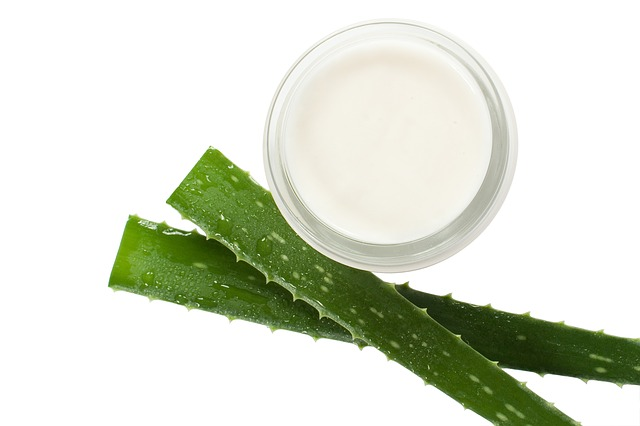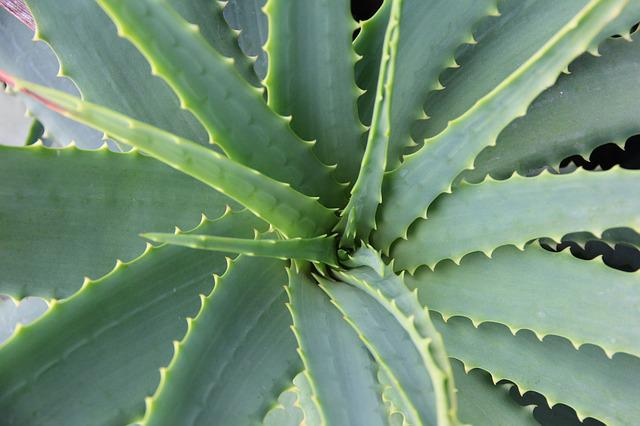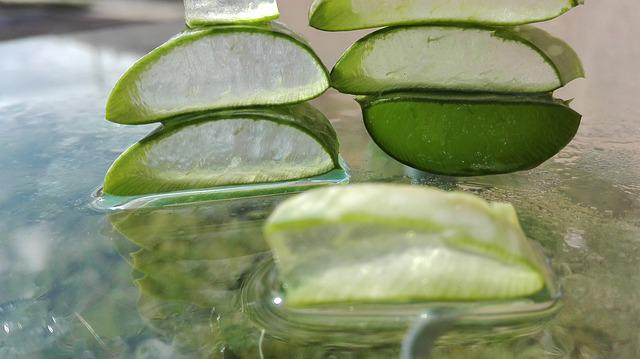Aloe Vera Soap: A Step By Step Guide To Make Soap At Home
Posted on July 27 2022
Facts About Aloe Vera Gel Natural Soap
The aloe vera plant or agave has been used medicinally for centuries and is well-known for its healing properties all around the world. Revered by the ancient Egyptians, the plant's use was first recorded in the first century AD. In Ayurvedic medicine, the plant is also popular and goes by the name kathalai.
Pure aloe vera gel has been used in medicine for thousands of years, and it is as popular today as it was back then. A variety of skin treatments, cosmetics, and bathing products, such as an aloe vera soap bar and shampoos, all include extracts which has a fresh scent.
So, what is it about aloe vera gels that has made it a well-known medicinal plant? It is high in glycoproteins and polysaccharides, making it useful in a variety of alternative medicine applications, including wound healing, relief of inflammation, vaginal dryness and cell growth.
The plant contains a substance that can be used topically to soothe burns, wounds, and skin irritations and it is also thought to have anti-inflammatory, antiseptic, and antibacterial properties so let's take a look at several of aloe vera benefits for women and men.
Table of Contents
Try SOAP.CLUB's Natural Soap Bars with added Aloe Essential Oils
Aloe Vera Home Remedies, Uses and Benefits
Reducing Blood Sugar Levels
The agave plant has been found to have a beneficial effect on blood glucose levels in diabetic individuals when taken orally in studies. It is also supposed to aid in lowering blood lipids in those who have hyperlipidemia.
Soothes Burns And Sunburn
It has long been used as a natural remedy to treat burns and sunburn. The cooling Aloe vera gel helps treat sore, tight epidermis, as well as first and second-degree burns in clinical trials.
Relieves Gastric Symptoms
When taken in juice form, agave is used as a dietary supplement to provide relief from gastric conditions like stomach ulcers and irritable bowel syndrome. Some people consume the juice as an all-around health and well-being aid or as a natural remedy for constipation.
SOAP.CLUB's Juicy Lime Natural Soap w/ Aloe Vera Essential Oils
Aids in Oral Health
Agave has been used for centuries as a natural remedy for oral health conditions such as gingivitis and canker sores. It is also thought to help treat bad breath.
Reduces Inflammation
The plant's anti-inflammatory properties make it useful in the treatment of conditions like arthritis and joint pain. It is also said to help reduce swelling from injuries.
Fights Infection
Aloe has both antibacterial and anti-fungal properties, making it a valuable natural remedy for treating infections.
Helps With Acid Reflux and GERD
Agave gel is a soothing drink for people with heartburn or GERD. It is also used as a natural laxative and it is also taken orally for a variety of purposes, including as a health tonic. It may be found in juice and/or gel form at health food stores.
Moisturizes The Skin
Aloe is a moisturizer that's beneficial to the skin in cosmetics, natural soaps, or even as a raw gel. Its emollient properties can assist with dry, itching patches of the epidermis, as well as promote wound healing from ailments like psoriasis.
Relieves Inflammation
Using agave topically is reported to have benefits for inflammatory joint conditions and muscle aches, with relief also reported in some instances of osteoarthritis when the gel has been massaged into the limbs and onto the inflamed skin.
Repels Acne Bacteria
In addition to being an anti-inflammatory, an aloe soap bar is said to have antibacterial properties that can help with acne. It is thought to work by killing the bacteria that cause pimples and reducing redness and swelling.
There is a multitude of benefits of pure aloe vera soap that the plant provides, making it a popular choice for those looking for a natural remedy:
It Helps With Dandruff And Dry Scalp
When added to shampoo, aloe vera can help with dandruff and dry scalp. It is thought to work by hydrating the scalp, reducing inflammation, and stimulating hair growth by removing excess sebum and unclogging follicles when applied to the scalp.

Aloe Vera vs Aloe Gel
Two forms of aloe vera are commonly used in skin care products: fresh aloe and aloe vera gel.
Fresh aloe gel is the clear, jelly-like substance that is extracted from the center of the plant's leaf. This form of aloe contains the highest concentration of nutrients, including vitamins, minerals, enzymes, and amino acids.
Aloe vera gel is a processed form of aloe vera that has been thickened with carrageenan or other ingredients. Aloe vera gel does not contain as many nutrients as the fresh version, but it is still beneficial for the epidermis.
Fresh Aloe Vera Uses & Benefits You Didn’t Know About
Aloe vera is a succulent plant often used for its medicinal properties. The gel from the aloe vera plant is often used as a topical treatment for burns, wounds, and other skin conditions. Aloe vera can also be taken orally as supplements or juices.
There are many potential benefits of using aloe vera, including:
1. Moisturizing the skin
2. Soothing burns and wounds
3. Reducing inflammation
4. Boosting immunity
5. Digestive support
6. Detoxification
7. Anti-aging properties
If you are considering adding aloe vera to your health regimen, it is important to consult with a healthcare professional to ensure it is safe.
Benefits of Aloe Vera and Honey
The natural ingredients used in making these soaps are rich in essential vitamins, minerals, fatty acids, and proteins. They replenish the skin’s moisture levels with the help of their emollient properties, reducing signs of aging, improving skin elasticity, and providing a healthy glow.
These soaps are also very helpful in healing dryness, sunburns, or any other rash or irritation that may be caused due to environmental factors. The aloe vera present in them is known to have healing properties, and together with organic, raw honey, it helps reduce inflammation while also soothing the skin.
Using such handmade products can make bathing a luxurious experience as they are gentle on your skin yet effective in cleansing it, providing you with the best of both worlds. So if you’re looking for a way to pamper your skin and give it some extra loving care, these natural soaps are just the answer.
It is also beneficial to use such products as they do not contain any harsh chemicals or synthetic substances, which can make your skin more sensitive or damage it further. Instead, they offer nourishment that helps restore its original balance.
In addition, these soaps are also suitable for all skin types and help regulate oil production without stripping away their moisture levels. So go ahead and give your skin the love it deserves by using natural soap bars infused with aloe vera and honey - you’ll see the difference for yourself!
Aloe Vera Mouthwash
Aloe vera mouthwash can be used to help relieve the symptoms of mouth ulcers, gingivitis, and other inflammatory conditions of the mouth. It can also help to freshen your breath and reduce plaque buildup.
To use aloe vera mouthwash, simply add a small amount of the gel to a glass of water and swish it around the mouth for 30 seconds to 1 minute. Spit it out and rinse with clean water. Repeat this process 2-3 times per day. You can find aloe vera gel at most health food stores or online.
Aloe Vera Juice
Aloe vera juice is a popular natural remedy for a variety of ailments. Some people drink it to relieve constipation, while others use it to soothe stomach ulcers.
The juice is also said to boost the immune system, improve skin health, and reduce inflammation.
While some scientific evidence supports these claims, more research is needed to confirm the benefits of aloe vera juice.
Aloe Vera Soap for the Face
One of the most popular ways to use agave is in facial soap. Aloe vera soap is made with natural ingredients and is gentle on the skin.
Aloe vera herbal bar soap can be used to cleanse the face, remove makeup, and moisturize the epidermis. It can also be used to treat acne, eczema, and other skin conditions.
Now that you know what the agave plant can do, see if it works well in your skincare routine. Aloe vera is a succulent plant whose gel can be used as a soothing, cooling epidermis treatment or packaged and sold as cosmetics or skincare products.
You may grow your agave plant at home and harvest the gel for use as a soothing, cooling epidermis treatment, or you may buy ready-made aloe vera.
You can find scientific proof here that aloe vera stimulates collagen production.
Frequently Asked Questions:
How Do I Extract Aloe For Soap-making?
To extract the gel from an agave leaf, cut off a stem from the plant close to the base. Using a sharp knife, make a lengthwise slit down the center of the stem. Gently peel back the outer layer to reveal the clear gel inside. The aloe vera gel can be used fresh or frozen for later use.
Does Aloe Vera Soap Lighten Skin?
Aloe vera soap can lighten the epidermis due to its natural bleaching properties. It can also help to fade scars and other blemishes.
Can I Use Aloe Vera Soap On My Face?
Yes, aloe vera soap is safe to use on the face. It can be beneficial for the skin, and it is an effective natural cleansing bar as it is gentle and can help to soothe irritated epidermis.
Is Aloe Vera Soap Good For Acne?
Yes, aloe vera soap can be good for acne. The soap's natural antibacterial properties can help to kill the bacteria that cause acne, and its anti-inflammatory properties can help to reduce the swelling and redness associated with acne.
What Are The Benefits Of Using Aloe Vera Soap?
Aloe vera soap has many benefits for the skin. It is gentle, soothing, and can help to reduce inflammation. It can also help to kill bacteria, making it a good choice for those with acne-prone skin. Additionally, aloe vera soap can help to lighten the epidermis and fade scars and other blemishes.
Can Essential Oils Be Used In Aloe Vera Soap?
Yes, essential oils can be used in aloe soap. However, it is important to choose the right essential oils for your skin type. For example, those with sensitive skin may want to avoid using essential oils that are known to be irritating. Additionally, it is important to dilute the essential oils in a carrier oil before adding it to the mix.
What Is The Shelf Life Of Handmade Soap?
The shelf life of handmade soap varies depending on the ingredients used. However, most handmade soaps will last for around six months to a year if stored properly.
What Can I Add To Aloe Soap Base?
Many things can be added to the aloe soap base. For example, you could add essential oils, colorants, or exfoliants. Rosemary, lavender, peppermint, and cedar wood essential oil are popular.
Does Aloe Vera Calm Redness?
Yes, aloe vera can help to calm redness and soothe the skin. It is a natural anti-inflammatory agent which can help reduce swelling and inflammation. Additionally, aloe vera has hydrating properties that can help to moisturize the skin and keep it looking healthy.
Take a closer look at our fresh Aloe Vera soap or try your hand at making your own with our easy DIY aloe vera soap recipe.
Need a quick gift? Try our Aloe Vera Soap below while you perfect your own recipe!
DIY Aloe Vera Soap Recipe:
Ingredients
Equipment
Method for DIY Aloe Vera Soap Recipe
1) Before you begin, gather up your soap-making ingredients and equipment and put on your safety goggles and protective gloves.
2) Line your soap mold with freezer paper and set it aside.
3) Prepare the aloe vera if you’re planning to use pulp by stripping away the outer thorns with a cucumber peeler. Place the pulp in a dish and use a fork to mix roughly and keep the chunky texture. Alternatively, use your stick blender to mash up the aloe vera into a smoother gel-like consistency. Weigh and set aside.
4) Next, measure out the distilled water into one pitcher and the lye into another. Pour the lye into the water and continuously stir for about ten minutes.
5) While the plant oils, and butter are being weighed out and melted in a pot on the stove, wait for the liquid soap to come to temperature. Allow the combination to cool to around 100°F before stirring.
6) When the lye mixture has reached the same temperature as the oils, pour into the pot of melted oils and butter and mix until you reach a light trace. At this point, add the aloe pulp or gel to the liquid soap and continue to mix – you can switch to your stick blender to reach a heavier established trace more quickly. Essential oils can be added at this point if you want to.
7) When the mixture reaches a medium to thick trace, pour it into your soap mold. Cover the mold with the lid and blanket and leave for at least 24 hours before removing them.
8) After a few more hours, remove the DIY Aloe vera soap from the mold and let it cure for at least two weeks on a drying rack. The longer the soap cures, the better quality it should be and shelf life will also be a bit longer; Soap.Club cures handcrafted soap for six weeks to achieve the best results.
Conclusion
We hope you enjoyed making our DIY Aloe vera soap at home – leave us a comment below and let us know how you made out?
Alternatively, feel free to share your soap-making tips and tricks, and don’t forget to check back to the Soap.Club blog regularly for more great cold process soap recipes.
Please Note Soap.Club receives fantastic recipes from our members and guest soapers daily. Soap.Club is unable to evaluate each recipe due to time and volume restrictions.
All recipes are intended as a suggested beginning point only. Because the dish requires lye, it's critical to double-check your lye measurements.
We do not promise the outcomes, and we strongly advise you to start with tiny batches.
Happy Soaping!
You can learn more about our products on our blog here or just click on the links below:
15 Amazing Benefits of Shea Butter Soap
How To Make Pure White Natural Soap From Goat Milk Recipe
Molding Soap: The Best (And Inexpensive) Soap Molds
How To Use Essential Oil For Soap Making
Natural Acne Remedies: 11 Effective Home Treatments: Part One
Benefits of Cold Process Soap Making
What To Use Lavender For: 12 Things To Do With Lavender
Soap Calculators: Lye Soap Recipes, SAP Values, and Formulations
Natural Acne Remedies: 11 Effective Home Treatments Part One





Follow Us